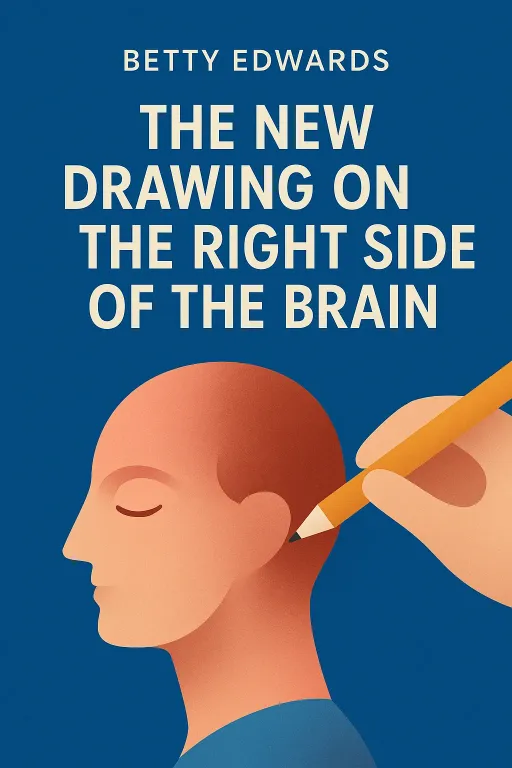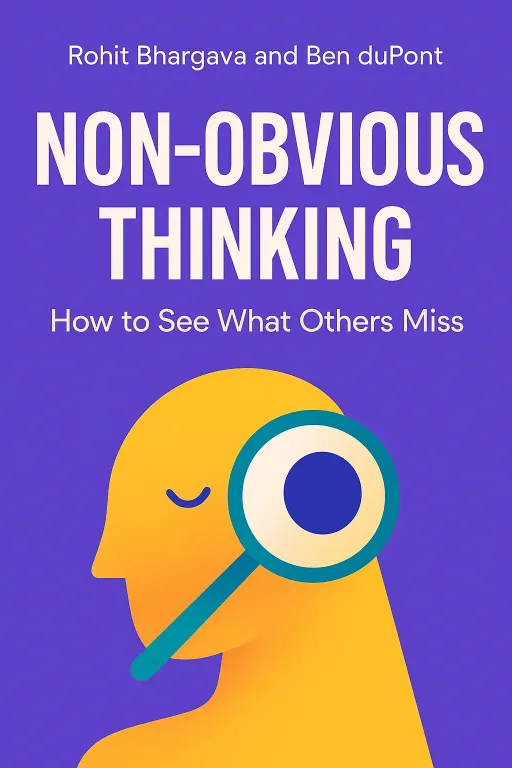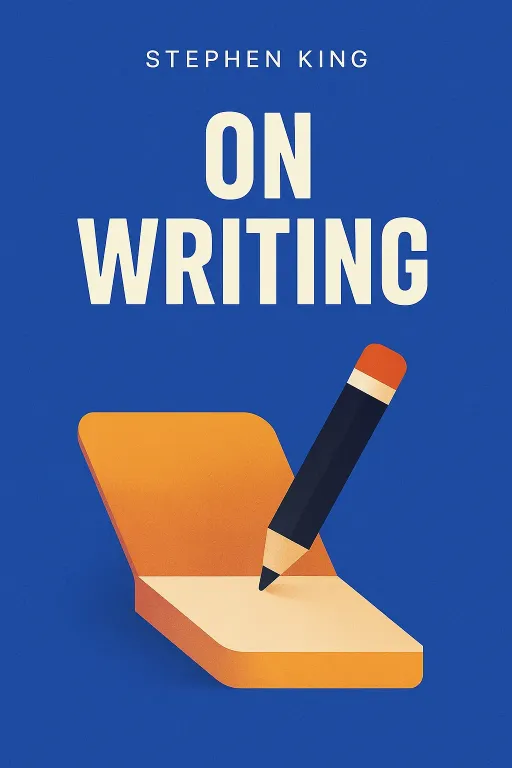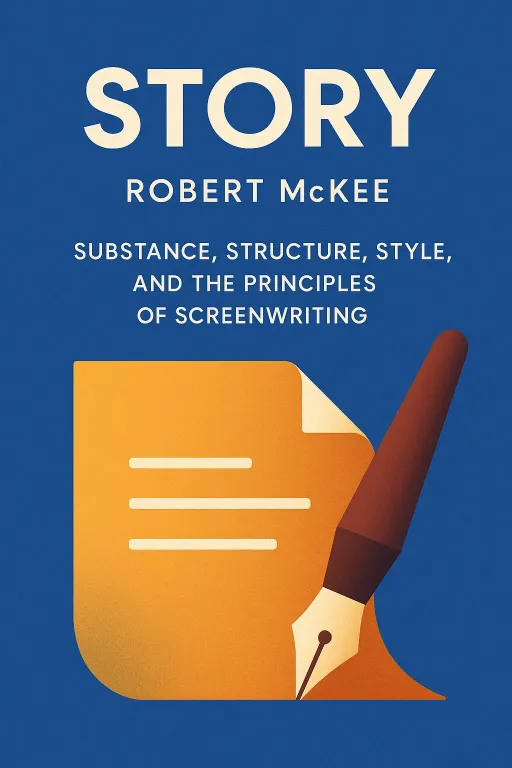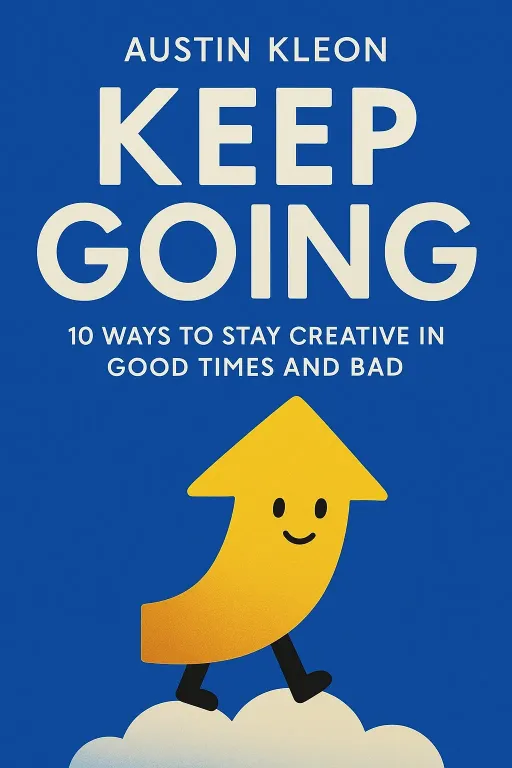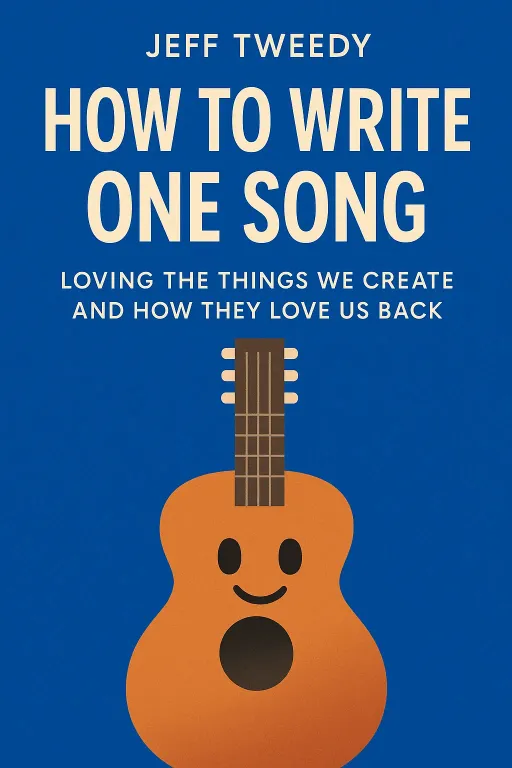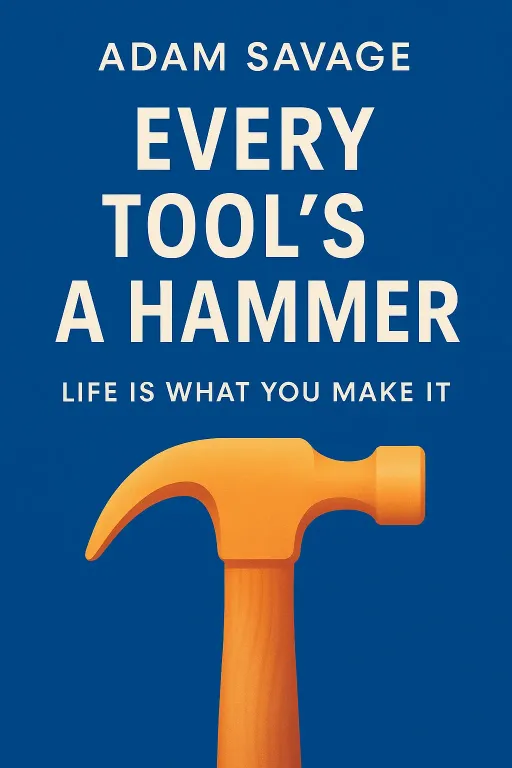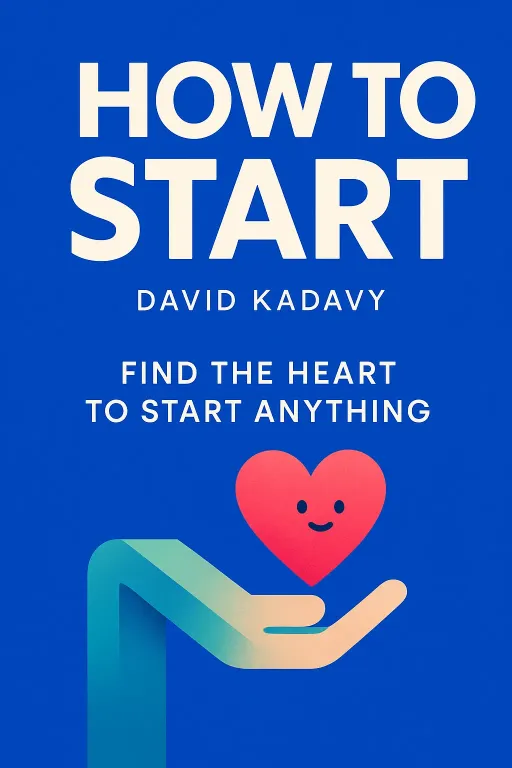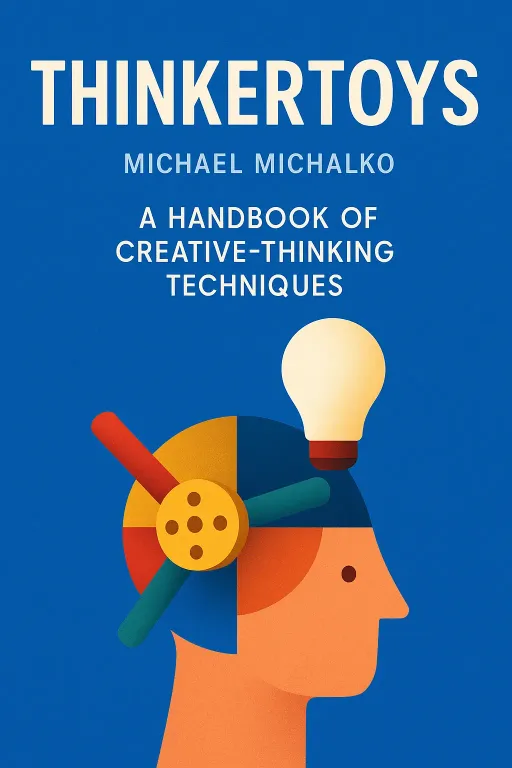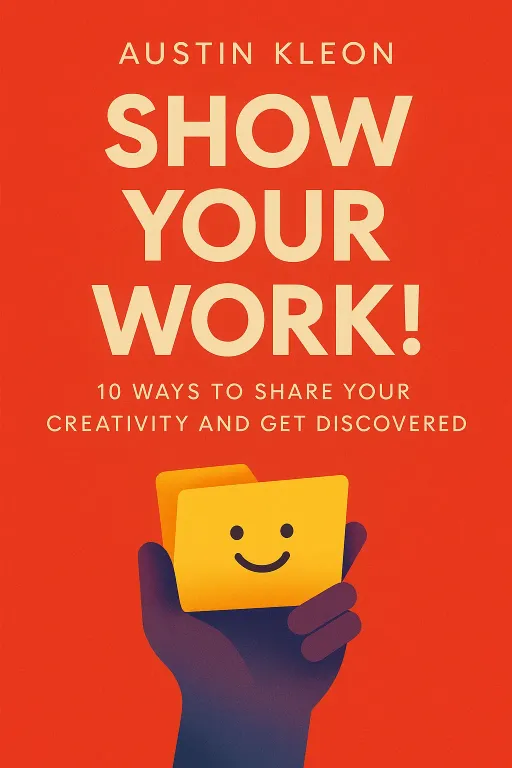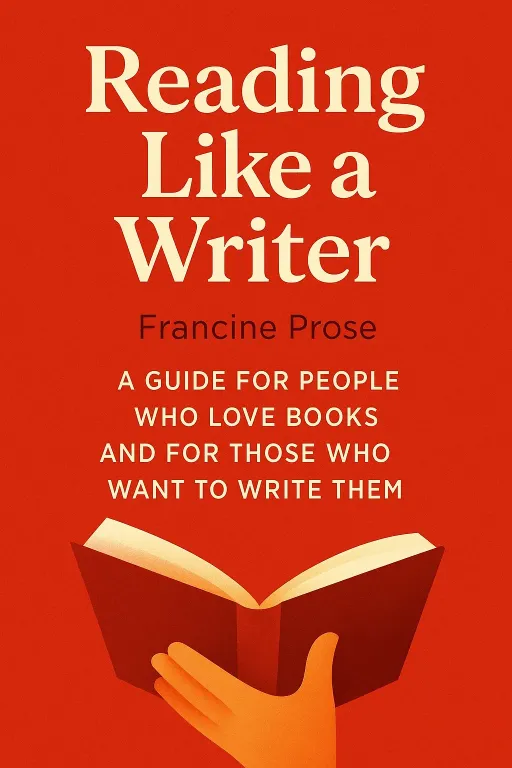
Reverse-Engineering Genius
12 minA Guide for People Who Love Books and for Those Who Want to Write Them
Golden Hook & Introduction
SECTION
Rachel: Most people think you can learn to be a great writer in a workshop. Francine Prose, a legendary author and teacher, says that's a lie. The most important parts—the love of language, the gift for story—can't be taught at all. So where do you learn them? Justine: Whoa, hold on. That's a pretty bold claim. If the most important parts of writing can't be taught, what have I been doing in all those evening classes? What's the secret, then? Rachel: That's the million-dollar question, and it's at the heart of the book we're diving into today: Reading Like a Writer: A Guide for People Who Love Books and for Those Who Want to Write Them by Francine Prose. And if anyone has the authority to make a claim like that, it's her. We're talking about a National Book Award finalist, a former president of PEN American Center, and a Distinguished Writer in Residence at Bard College. She's spent decades in the literary trenches. Justine: Okay, so she's got the credentials to back it up. But I'm still stuck on that first point. If you can't teach writing, what's the point of a book about... well, writing? How do you actually learn? Rachel: You learn by becoming a different kind of reader. You learn by becoming a literary detective. Prose's entire argument is that the best writing school is your bookshelf. You just have to learn how to read with a writer's eyes.
The Art of 'Close Reading': Learning to Read with a Writer's Eye
SECTION
Justine: A literary detective. I like the sound of that. But 'close reading' also sounds suspiciously like my tenth-grade English class, where we had to analyze poems until all the joy was sucked out of them. How is this different? Rachel: That's the perfect question, because Prose tackles that exact issue. This isn't about finding the "correct" symbolism to get an A. It's about reverse-engineering genius. It’s about looking at a masterpiece and, instead of just saying "Wow," asking "How?" How did the author do that? She has this fantastic quote where she says it requires "putting every word on trial for its life." Justine: Putting every word on trial for its life. That’s intense. It sounds exhausting. Rachel: It can be, but she tells this wonderful story from her own life that shows how it can become thrilling. When she was in high school, her English teacher gave the class what seemed like a mind-numbingly dull assignment: write a term paper on the theme of blindness in Oedipus Rex and King Lear. Justine: Oh man, I can feel the collective groan of that classroom from here. Rachel: Exactly. The students were not thrilled. But the teacher gave them a specific instruction: go through both plays and circle every single reference to eyes, sight, light, darkness, and vision. At first, it was mechanical. But then, something shifted. Prose says it became a kind of treasure hunt. Justine: A treasure hunt? How? Rachel: As they started circling the words, they began to see a pattern emerge, a hidden language woven through the text. It felt, she said, like they were cracking a code that Sophocles and Shakespeare had deliberately embedded for them to find. It stopped being an assignment and became an intimate communication with the writers themselves. They weren't just reading; they were seeing how the machinery of the story was built, piece by piece. Justine: Okay, that I get. It’s not about finding what the teacher wants you to find. It’s about seeing the blueprints. I’ve definitely had that experience where I read a sentence and it just hits me, like a physical gut punch. It feels like magic. Rachel: Right! And Prose is saying it’s not magic, it's architecture. And you can learn to see the architecture. That's the whole point of close reading. It’s about moving from being a passive admirer of the building to an apprentice who's studying the joinery, the materials, the foundation. Justine: So you're a literary detective, and the crime scene is the page. What are the first clues you look for? Where do you even start?
The Building Blocks of Genius: From the Perfect Word to the Powerful Paragraph
SECTION
Rachel: You start with the smallest possible unit: the word. Then the sentence. Prose tells this hilarious and slightly painful story about a young writer who gets taken to dinner by his high-powered agent. The agent asks him, "So, what do you want to write about?" And the young writer, full of artistic integrity, says, "You know, I don't really care about the subject. I just want to write great sentences." Justine: Oh no. I can feel the cringe from here. How did the agent react? Rachel: The agent just stared at him and said, "Promise me that you will never, ever in your life say that to an American publisher." It perfectly captures this tension between writing as a craft and writing as a commercial product. Publishers sell plots, but Prose argues that writers live and die by their sentences. Justine: But what about plot? Isn't that what keeps people turning the pages? Rachel: Of course. But Prose's point is that the plot is delivered through language. The way a story is told is inseparable from the story itself. And she gives these incredible examples of how this works in practice, from her own writing life. She calls it learning by apprenticeship. Justine: You mentioned she learned how to solve her own writing problems by reading. Can you give me an example? How does that actually work? Rachel: Absolutely. She tells this story about being stuck on a novel she was writing. She had to write a party scene, and it was just falling flat. She couldn't figure out how to manage all the different characters and conversations without it becoming a chaotic mess. Justine: I can see how that would be tricky. It could easily just become a wall of noise. Rachel: Exactly. But at the same time, she happened to be teaching a literature course, and the book on the syllabus was James Joyce's "The Dead," which contains one of the most famous party scenes in all of literature. So, she started analyzing it with her students, not just for its themes, but for its mechanics. She saw how Joyce orchestrated the voices of the party guests like a chorus, from which the main characters would step forward for their solos and then recede back into the group. It was a technical solution. She went home, applied that same technique to her own scene, and it worked. Justine: Wow. So it's like a technical manual, but the instructions are hidden inside classic stories. That’s brilliant. Rachel: It's incredibly practical. She has another one. She was writing a story that needed to end in a moment of horrific violence, but she couldn't make it feel natural or inevitable. It just felt tacked on. Justine: A common problem for writers, I'd imagine. Making extreme events feel earned. Rachel: For sure. And again, the solution came from her teaching. She was teaching the short stories of Isaac Babel, a Russian writer known for his depictions of war and violence. As she read his work closely, she noticed a pattern. Right before a moment of extreme violence, Babel would often insert a passage of intense, almost breathtaking lyricism—a beautiful description of the sky, or a quiet, poetic moment. It was a deliberate juxtaposition. The beauty made the subsequent violence even more shocking and believable. Justine: It’s like the quiet before the storm. The contrast heightens the impact. Rachel: Precisely. So Prose tried it. She wrote a lyrical, beautiful passage right before her violent scene, and she said it solved the problem instantly. The scene suddenly had weight and credibility. Justine: This is fascinating, but it brings up a question. Joyce, Babel, Shakespeare... these are all from a very specific literary canon. I know some readers have criticized the book for focusing so heavily on, let's be frank, a lot of dead white men. Does this advice work if you're writing a modern thriller, or science fiction, or a romance novel? Rachel: That's a very fair and common critique of the book. Prose's taste is unapologetically literary. However, her argument would be that the fundamental tools—word choice, sentence rhythm, paragraph structure, the use of contrast—are universal. A well-crafted sentence is a well-crafted sentence, whether it's describing a spaceship or a drawing room in the 19th century. But you're right, the book is not a guide for genre-specific tropes. It’s a guide to the engine of language itself, which she believes powers all good writing.
Beyond the Page: Narration, Character, and the Courage to Break the Rules
SECTION
Rachel: And that idea of finding your own way, of learning from the masters to build your own house, leads to what I think is Prose's most courageous and beautiful idea. Justine: Okay, I'm ready. What is it? Rachel: She talks about the importance of your audience. But she's not talking about the market or your target demographic. She suggests you should be writing for an audience of the dead. Justine: An audience of the... dead? As in ghosts? That's a little spooky. Rachel: (laughs) Not quite ghosts. Your literary heroes. The writers whose work you admire most. She tells this charming story about her childhood piano teacher, who had these little plaster busts of Bach, Beethoven, and Mozart. The teacher used them as rewards, but Francine was never motivated. She didn't care about impressing Beethoven. She was more worried about what P.L. Travers, the author of Mary Poppins, or George Eliot would think of her work. Justine: That's such a wild and beautiful idea. It's like you're inviting Tolstoy and Virginia Woolf to be your beta readers. Rachel: Exactly! And it's not just a cute, sentimental notion. It's a deeply practical tool. Think about it. If your audience is Jane Austen, you're going to pay a lot more attention to your dialogue. If your audience is Ernest Hemingway, you're going to be ruthless about cutting unnecessary words. It frees you from the anxiety of what your workshop peers will think, or what's currently trending on the bestseller list. It connects you to a timeless standard of excellence. Justine: But doesn't that get intimidating? Trying to write something that you think Chekhov would approve of? I feel like I'd just be paralyzed by the pressure. Rachel: Prose frames it as a source of courage, not fear. She has this wonderful quote: "I’ve always found that the better the book I’m reading, the smarter I feel, or, at least, the more able I am to imagine that I might, someday, become smarter." Reading the greats doesn't diminish you; it elevates you. It gives you the courage to try for something more. And it gives you permission to break the rules. Justine: What kind of rules? Rachel: The classic workshop rules. "Show, don't tell." "Write what you know." Or the big one: "Pick a point of view and stick to it." Prose points to a book like Wuthering Heights, which has this incredibly complex, nested-doll structure of narration—a story within a story told by someone who heard it from someone else. It completely breaks the rules, and it's a masterpiece. Reading the masters shows you that the rules are more like guidelines, and the real art begins when you know when and how to ignore them.
Synthesis & Takeaways
SECTION
Justine: So, when you boil it all down, the big takeaway from Reading Like a Writer isn't a list of ten rules for better writing. It's a whole new way of engaging with books. It's about transforming from a passive consumer of stories into an active apprentice of the craft. Rachel: Exactly. It's not a "how-to" book; it's a "how-to-see" book. It teaches you to read with a loupe, to appreciate the microscopic decisions that create a macroscopic effect. It’s about cultivating a lifelong apprenticeship with the greatest writers who ever lived. Justine: I love that. And for someone listening who feels inspired and wants to try this tonight, what's a concrete first step? Do I just grab War and Peace and a magnifying glass? Rachel: (laughs) You could! But Prose offers a much more manageable starting point. She says the next time you read a book you truly love, a book that makes you feel something, don't just let the feeling wash over you. Stop. Pick one paragraph that stands out. And just ask questions. Why this specific word and not its synonym? Why is this sentence long and the next one short? Why did the author put a comma here? It's not about destroying the magic of reading. It's about understanding the spell. Justine: Understanding the spell. That’s a perfect way to put it. It makes reading feel active and powerful. We'd love to hear from our listeners about this. What's a book that has taught you the most about writing, just by reading it? Find us on our socials and share the title that changed the game for you. Rachel: This is Aibrary, signing off.
